International Day of Education
Posted in: Days of Observance
Celebrated every year on January 24, the day acknowledges the critical importance of education within society.
Rebuilding Learning and Hope in Palestine – 2026
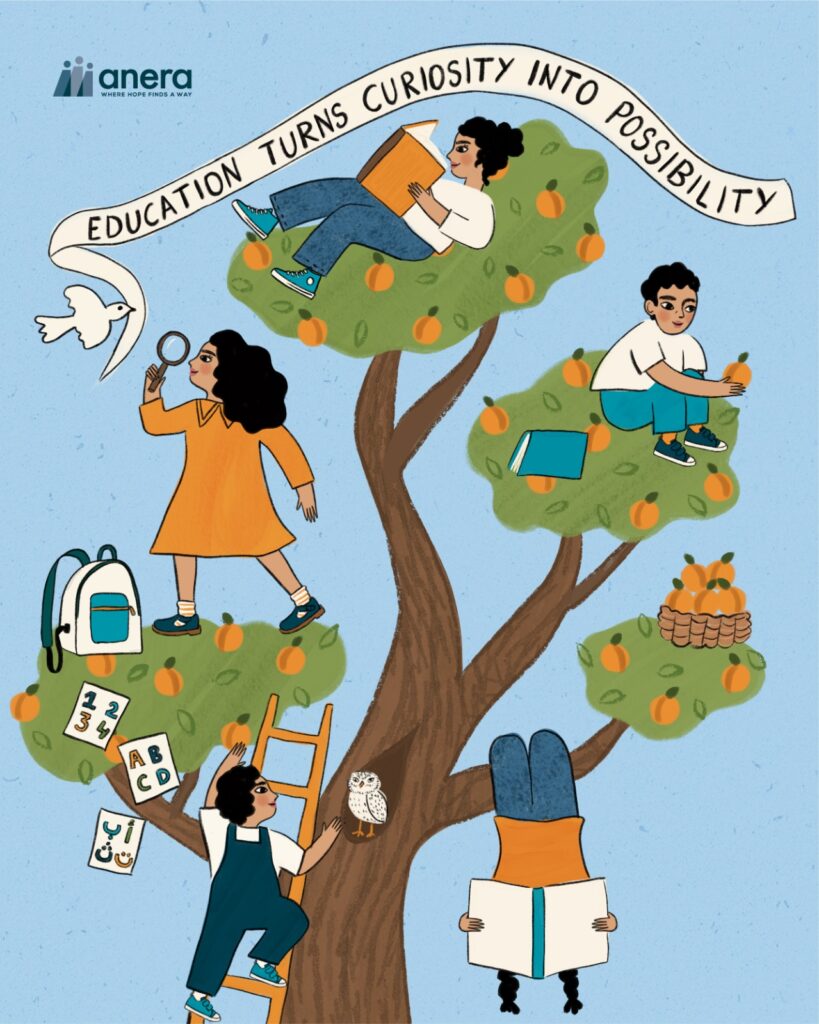
On the 2026 International Day of Education, we are reminded that education is more than classrooms and textbooks. It is a source of dignity, stability and hope, especially in places where crisis has made learning fragile or impossible.

Across Gaza, the West Bank and East Jerusalem, education is facing unprecedented challenges. Years of protracted conflict, including the most recent war on Gaza, mass displacement, destruction of civilian infrastructure and a deep fiscal crisis affecting public institutions, have pushed the education system into a state of chronic disruption. For an entire generation of children and youth, schooling has been interrupted again and again, often for years at a time. Exposure to violence, trauma and uncertainty is taking a lasting toll on learning, mental well-being and belief in the future.
Without sustained and coordinated action, these losses risk becoming permanent, with consequences that reach far beyond the classroom and affect social cohesion, economic recovery and long-term stability.
That reality is why Anera has launched its education strategy for the next three years, focused on restoring learning while strengthening education systems so they can better withstand future shocks.
The Current Reality in Gaza

In Gaza, the education system has been effectively dismantled. Schools and learning facilities have been destroyed on a massive scale, leaving hundreds of thousands of children without access to in-person education for more than two years. Teachers, administrators and education staff have been killed, injured or displaced. Ongoing insecurity, unexploded ordnance, electricity shortages and a lack of materials make even basic education delivery extraordinarily difficult.
Temporary learning spaces have emerged as an alternative to brick and mortar school. They provide some feeling of safety and a sense of normalcy amid devastation, but these spaces are too few to meet the overwhelming need.
The Current Reality in the West Bank and East Jerusalem

In the West Bank and East Jerusalem, many school buildings still stand, but learning remains persistently disrupted. Military incursions, settler violence, unsafe routes to school, movement restrictions and administrative fragmentation undermine attendance and instructional continuity. Chronic underfunding has left teachers without regular salaries for extended periods, eroding morale and classroom quality.
Families are forced to make daily decisions about whether it is safe for their children to attend school. Over time, these pressures slowly erode trust in education as a reliable pathway to opportunity.
Anera’s Five Pillars for Education Recovery and Resilience
The strategy is built around five interconnected objectives designed to operate together and reinforce one another.
1. Restoring Safe and Inclusive Access to Learning
Education recovery begins with access. In Gaza, this means rapidly expanding safe, adaptable temporary learning spaces that respond to displacement and insecurity — preserving access to education where schools no longer exist. In the West Bank and East Jerusalem, it includes rehabilitating schools, improving water and sanitation facilities and reducing barriers that prevent children from attending safely and consistently.
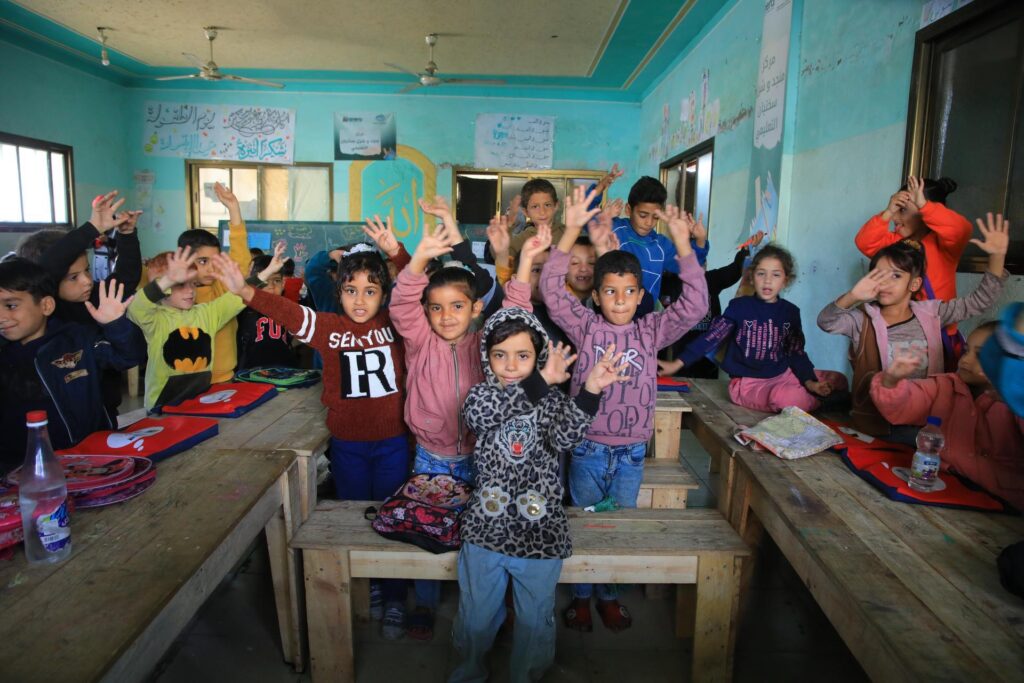
2. Strengthening Teaching Quality and Learning Systems
Teachers are at the heart of recovery. Anera invests in trauma-responsive, inclusive professional development aligned with national curricula, paired with ongoing mentoring. Accelerated and remedial learning pathways help students recover foundational skills without stigma, even when attendance is irregular.

3. Integrating Psychosocial Well-being into Education
Children cannot learn if they do not feel safe. Psychosocial support is woven into daily learning through play, expressive arts and trauma-responsive classroom practices. Educators are trained to recognize distress and connect children to specialized services when needed.
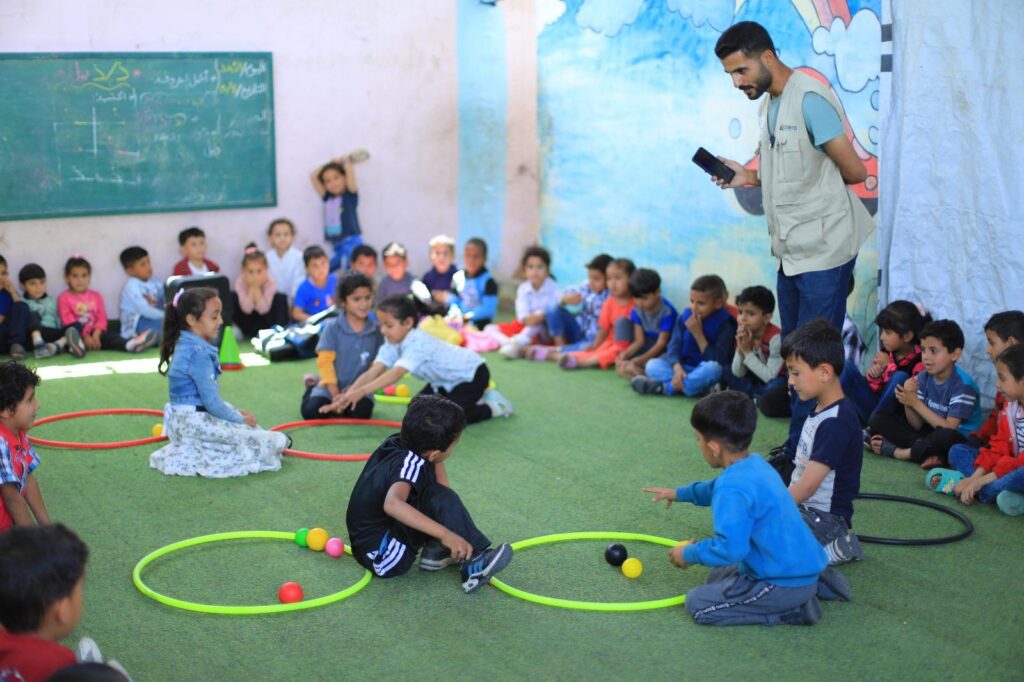
4. Empowering Families and Communities as Education Partners
Sustainable education depends on trust and local ownership. Caregiver education, community education committees, youth-led initiatives and community learning hubs strengthen participation, accountability and social cohesion. These efforts help keep children learning even in times of hardship.
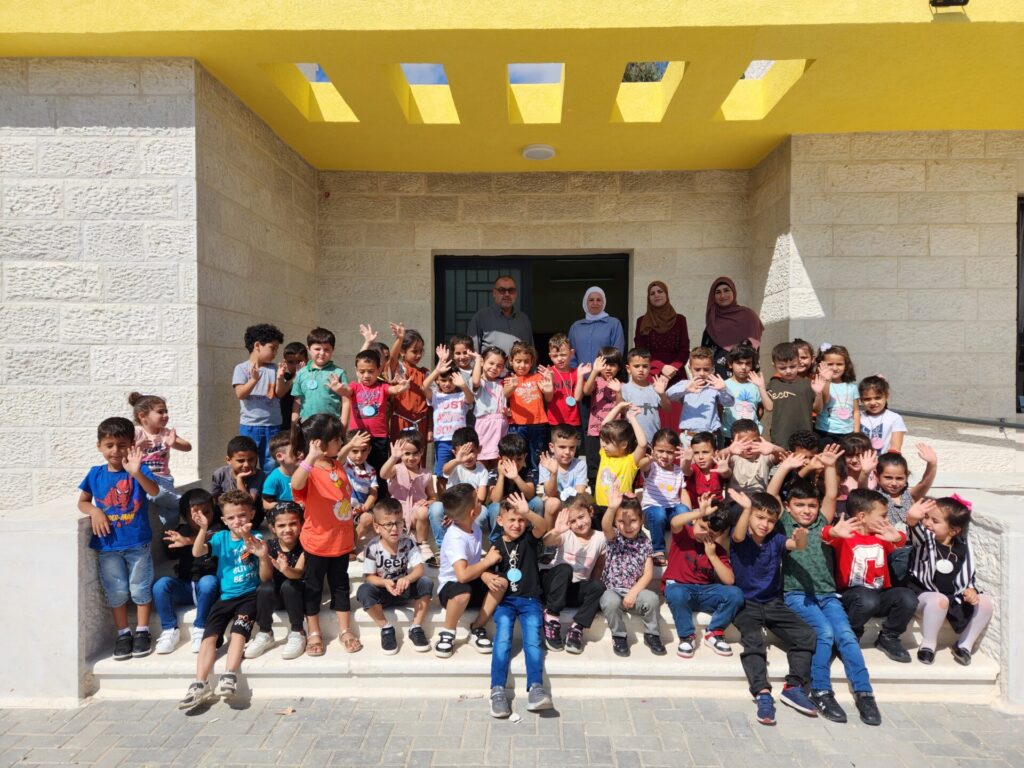
5. Strengthening Coordination, Policy Alignment and Standards
Long-term recovery requires coherence. Anera works closely with education coordination platforms, aligns programs with ministry of education priorities and contributes evidence from the field to inform policy and practice. Safeguarding, accountability and responsible data use are embedded across all activities.

Education as Both Emergency Response and Long-Term Recovery

Anera’s education strategy responds to these realities by treating education as both an urgent humanitarian priority and a cornerstone of long-term resilience. The goal is not simply to return to a pre-crisis baseline but to rebuild education systems that are stronger, more flexible and better equipped to survive future instability.
Drawing on nearly six decades of continuous work in Palestine, Anera brings deep contextual knowledge, trusted partnerships and the ability to operate under extreme constraints. Our approach bridges emergency response and system strengthening, ensuring that short-term interventions reinforce national systems rather than replace them.
This strategy positions Anera as an implementer, enabler and convener. The organization delivers immediate services, supports ministries and local partners and strengthens coordination across the education sector.
A Phased Path Forward
From 2026 to 2028, Anera will implement the implementation following a phased approach. Our early efforts will focus on stabilization, access and psychosocial integration. As conditions allow, programs will then expand and deepen, with greater emphasis placed on instructional quality, community engagement and coordination. By the final phase, the focus shifts toward institutionalization and system strengthening, supporting a transition from emergency response to sustained recovery.
Why This Matters on the 2026 International Day of Education
Education in Palestine today is about far more than academic achievement. It is about protection, healing and preserving the possibility of a future. On International Day of Education, Anera’s strategy reflects a simple but powerful truth: when learning is restored, dignity follows. When education systems are strengthened, communities become more resilient.
Even in the most fragile conditions, education remains one of the strongest investments we can make, not only in children but in the future stability and well-being of entire societies.

Because every child deserves the chance to learn, to heal and to hope.
2025
On World Education Day 2025, we celebrate the power of education and artificial intelligence in building a brighter future. With knowledge and innovation, children can rebuild their communities and maintain the human role in a technology-driven world. Let us work together to invest in education for a better future for children, youth, and our communities.
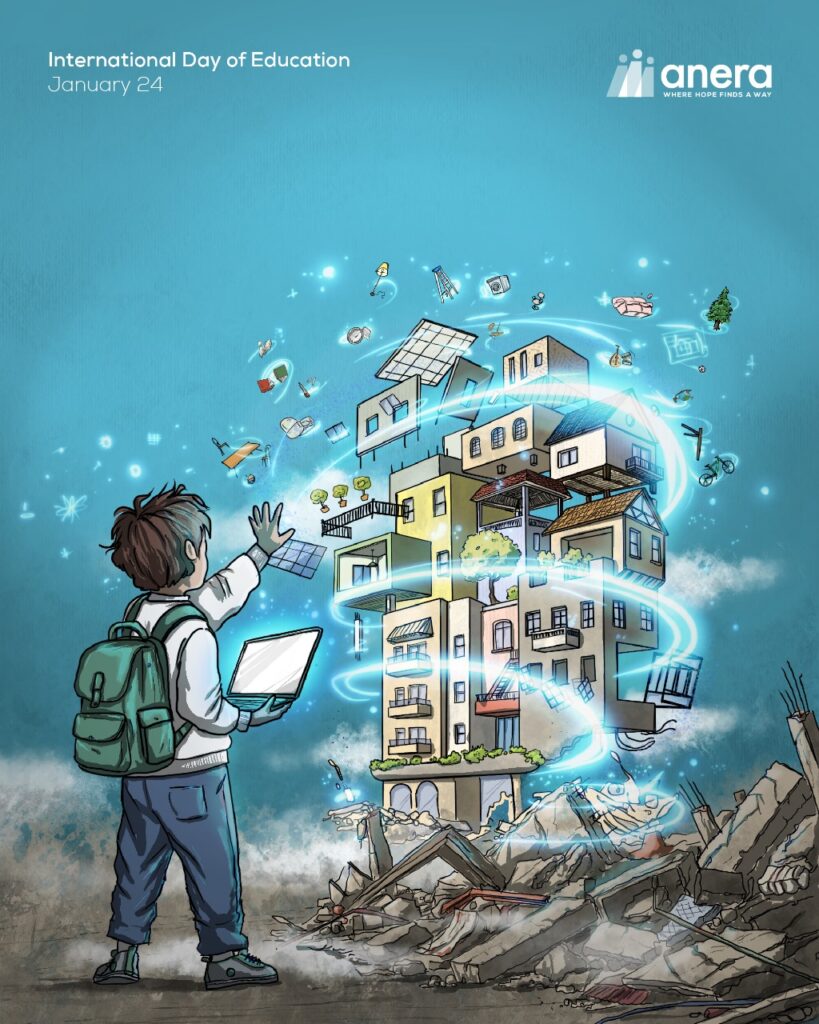
In Gaza, against the odds some children are still finding ways to continue their learning. Determined to keep education alive even in the darkest moments, we established temporary learning spaces and provided educational resources from our Hayya Naqra (”Let’s Read”) literacy initiative. This program, already a cornerstone of Anera’s work in Gaza, has provided children and families with some of the materials they need for learning, and returning to sort of normalcy.
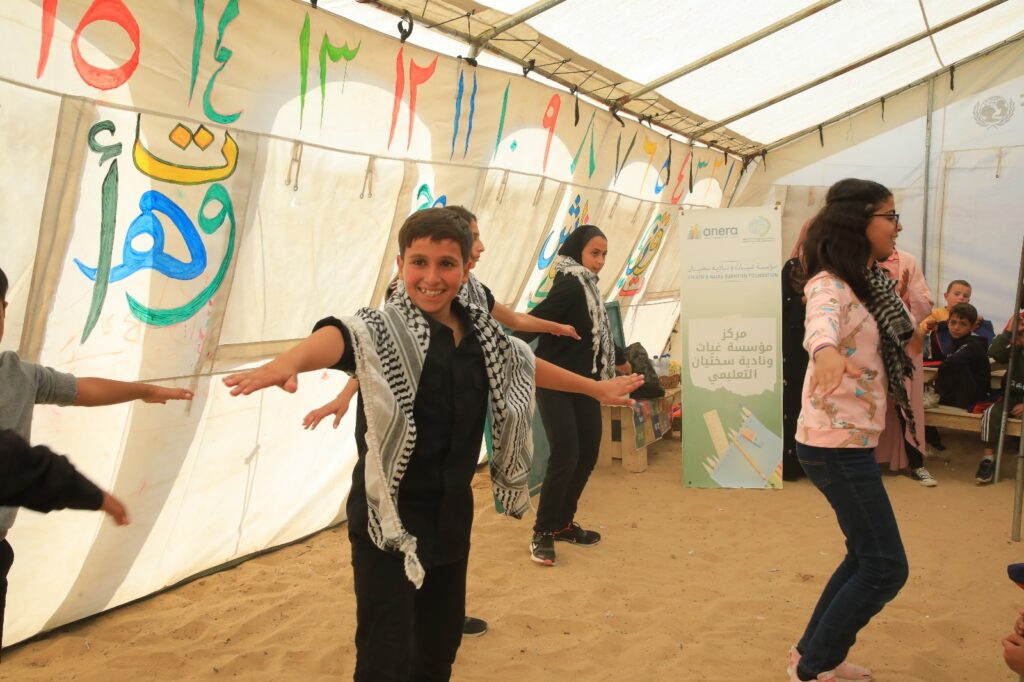
With the ceasefire now in place, Anera is shifting from emergency response to recovery and rebuilding. Our next steps focus on scaling up temporary learning spaces and expanding access to Hayya Naqra kits.
A Brief History of the International Day of Education
On Dec. 3, 2018, the United Nations proclaimed Jan. 24 as the International Day of Education. This day celebrates education’s vital role in cultivating peace and development throughout nations. The International Day of Education, also called International Education Day, supports inclusive, equitable and quality education for all.
The United Nations Educational, Scientific and Cultural Organization defines education as a human right, a public responsibility and a public good. This international observance day reinforces the critical position of education in building sustainable, resilient societies and fostering peace across the globe. The International Day of Education highlights education’s role as a foundation for transformation, creating space to discuss its meaningful role in the lives of young people and how we can help increase access and opportunity.
Continuing Education Programs Despite the Pandemic
For many countries in the Middle East, gaps in access to education are widening, especially for students already facing deep educational disparities, such as students of color, students with disabilities and English learners.
These gaps in education are often created by strained education systems. For example, in Palestine, there is a lack of infrastructure, which is exacerbated by regional conflict. For the poorest households in Palestine, an inability to access adequate technology and learning materials prevents many children from continuing their education. In Lebanon, the struggling education system most heavily impacts refugees, which make up about a third of its population and mostly come from Syria.
Anera works to increase access to education, creating programs that deliver employable skills and experiences to the most vulnerable communities. In the aftermath of the COVID-19 pandemic, as the world shifted to relying more on virtual platforms, we adapted aspects of many of our programs to online formats, providing our students with the means necessary to access their education both in-person and at home.
Here are some of the education programs we provide:
Educational opportunities for women and girls: When women and girls have access to educational and economic opportunities, they invest in their communities and improve the lives of everyone around them. Meet some of the girls and young women studying in Burj El Barajneh Refugee Camp.
Coding classes: Our PLUS coding classes bring students together for 20 weeks of training and team-building. The students graduate professional software engineers with market-ready, adaptable coding skills and “soft” skills essential to the industry. Meet the Palestinian coders and developers building the future from Palestine.
Technology for at-home learning in Lebanon: In Lebanon, we provide thousands of young people with free vocational training opportunities, apprenticeships, and cash-for-work opportunities. To bolster access to vocational education, we launched 11 online English pilot classes in Lebanon and distributed tablets, laptops and internet data cards to students and teachers, ensuring safe at-home learning. Learn about our vocational training opportunities in Lebanon.
Laptop access for Jordanian students: To help young Jordanian students gain access to education, we distributed Thaki laptops to students in our 12-month after-school, non-formal education program. Along with safe access to online learning, many of these students learned how to use laptops for the first time and access new capabilities. See how students are using these resources to continue their education.
Preschools in Palestine: Our Right Start program supports holistic early childhood development in Palestine, helping these young students learn skills like critical thinking, tolerance and understanding. This wide-reaching program involves “pilot” preschools that serve as models, renovations to existing preschools and teacher training. Learn how we’re creating vibrant early childhood education in Palestine.
Learn More About Anera’s Educational Programs Today
The International Day of Education shows us that education is a vital part of building vibrant, sustainable and peaceful futures.
We continue to offer a wide range of education programs, meeting the needs of students of all ages in the countries we serve. . With your support, you can give people in Palestine, Lebanon and Jordan access to learning opportunities from preschool through college. Read more about our educational programs to see how your support helps students in the Middle East.
2023: To Invest in People, Prioritize Education
2022: Changing Course, Transforming Education
By Saniah Naim
January 24th is International Day of Education, a day to celebrate inclusive and equitable quality education, and promote lifelong learning opportunities for all. Here at Anera, we make it a priority to quickly adapt our educational programs as COVID-19 forces people indoors.
Here are three ways Anera’s education programs continue despite the pandemic.
- When women and girls have access to educational and economic opportunities, they invest in their communities and improve the lives of everyone around them. Meet some of the 30 girls and young women studying in Burj El Barajneh Refugee Camp.
- Under normal, non-COVID circumstances, our PLUS coding students would be coming together in person for 20 weeks of training and team-building. Anera adapted the program for the new cohorts of students from across the West Bank and Gaza by moving it entirely to online learning. Meet the Palestinian coders and developers building the future from Palestine.
- During the ongoing economic and refugee crises, we weren’t going to give up on the thousands of young people who depend on our free-of-charge vocational courses and the income opportunities that come with them. Anera launched 11 online English pilot classes in Lebanon, distributed tablets, laptops and internet data cards to students and teachers ensuring safe at home learning. Learn how COVID-19 won’t stop Anera’s education programs in Lebanon.
With your support, you can give people in Palestine, Lebanon and Jordan access to learning opportunities from preschool through college.
Read more about our educational programs.
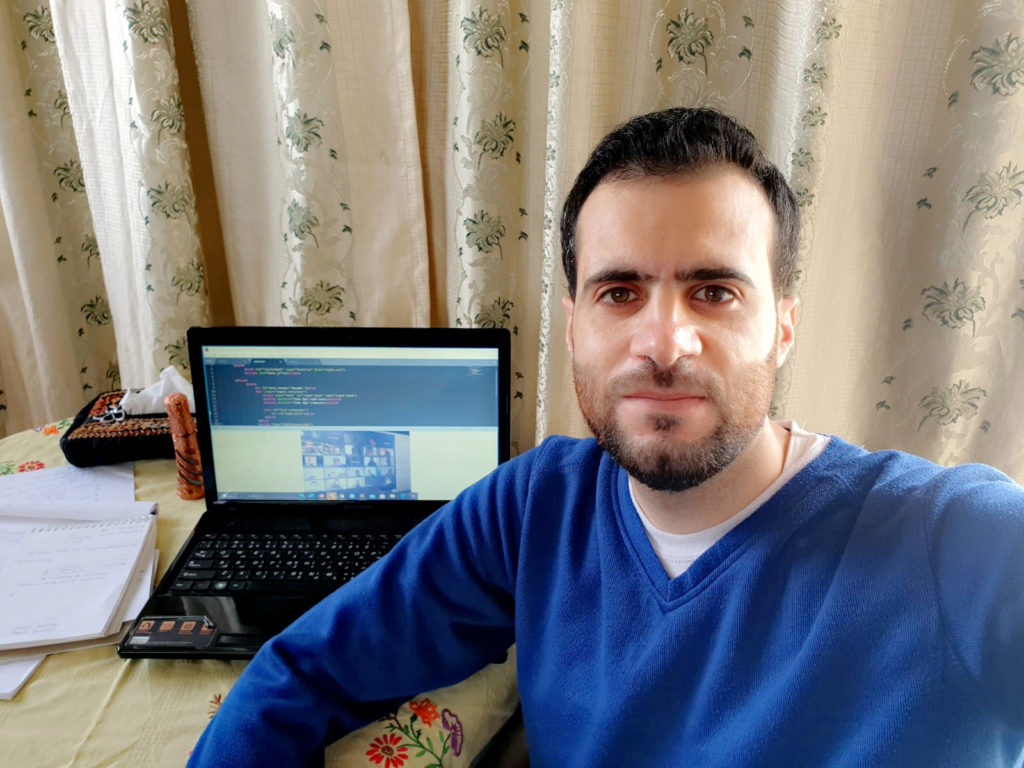
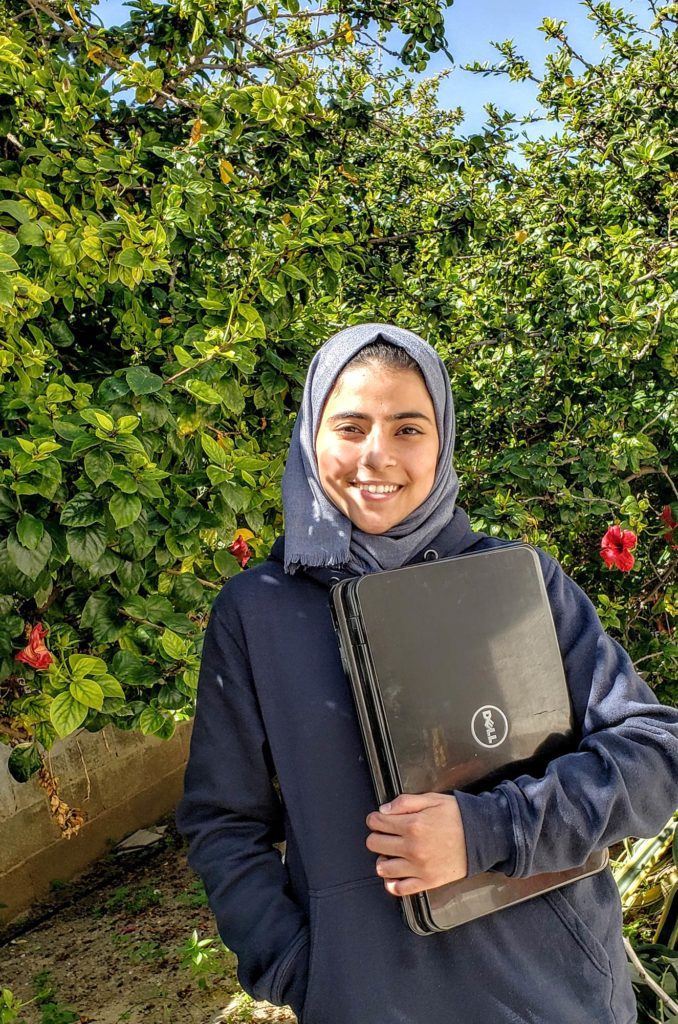
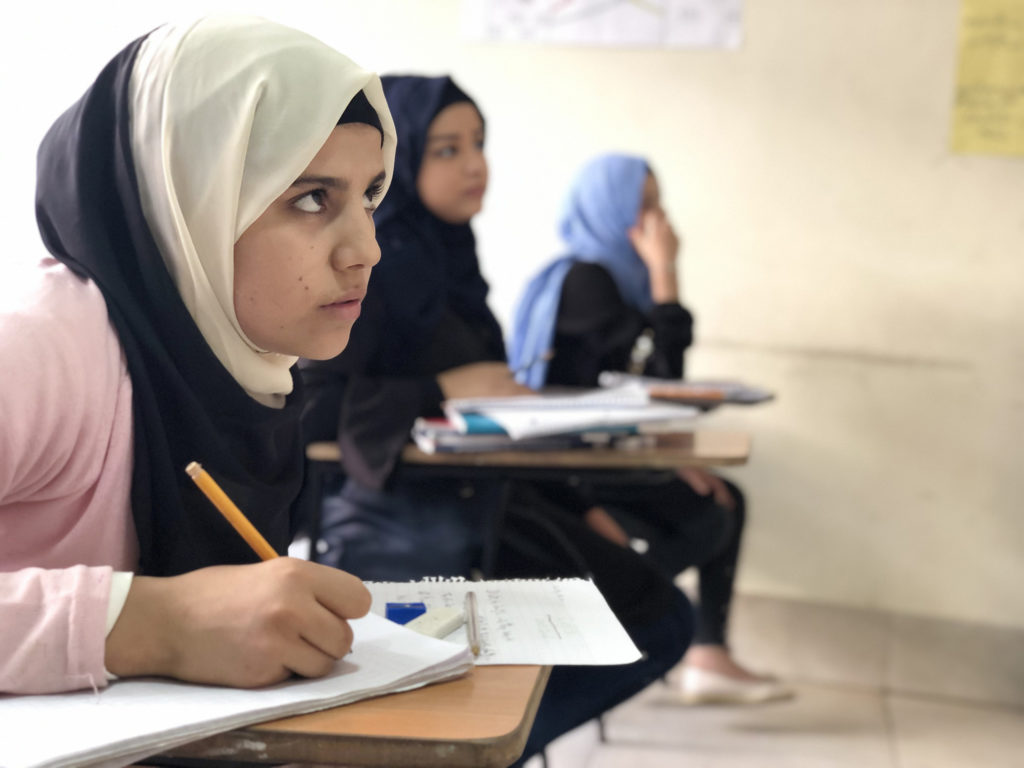
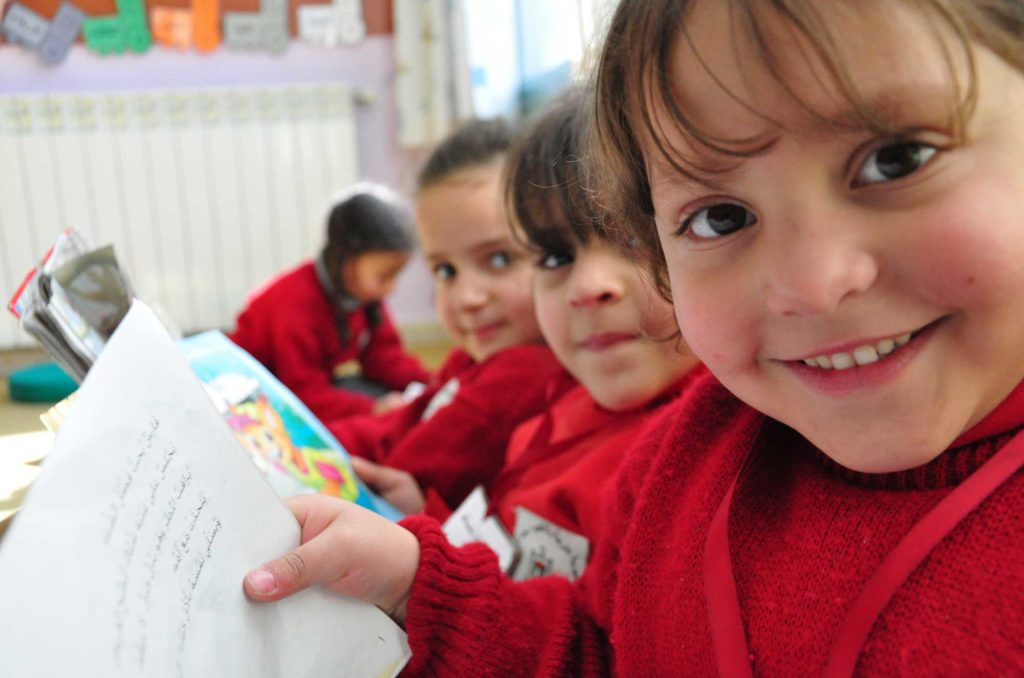
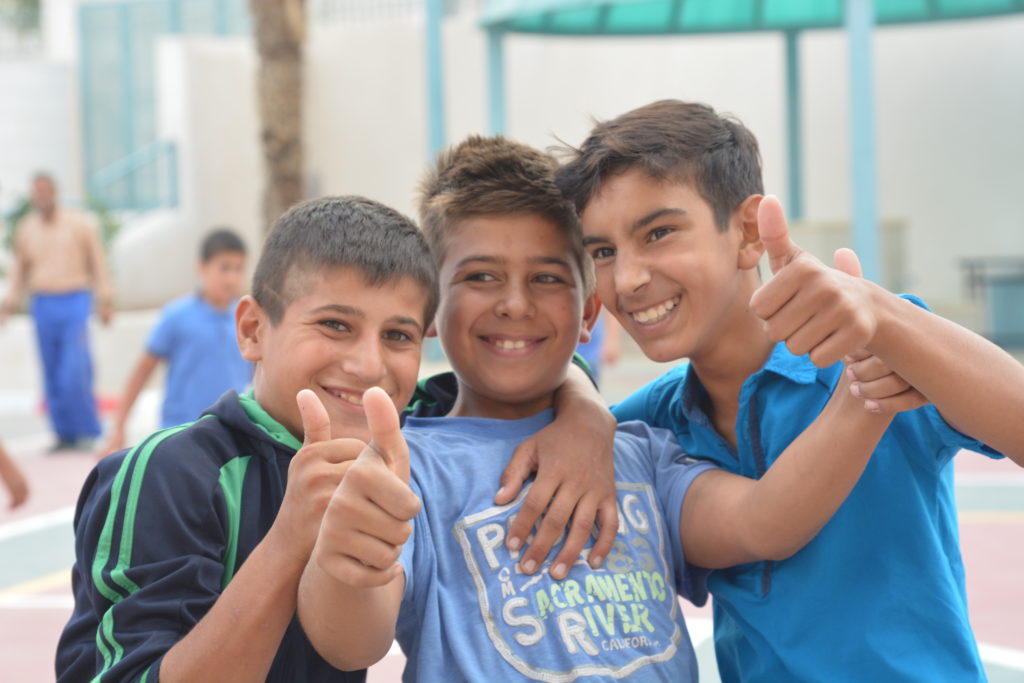
OUR BLOG
Related
Anera Humanitarian Aid and Development in Lebanon – Activity Log This log provides a daily snapshot of Anera’s humanitarian work in Lebanon. While it offers a glimpse into the efforts of our staff as they deliver vital programs across the country, it…
With the help of Anera’s rooftop garden program, Abu Ali from the Al Burghelieh village of South Lebanon has been able to harvest 100 kilograms (200 pounds) of fresh produce. Abu Ali’s banana, papaya, and dragon fruit yield provide fresh…
